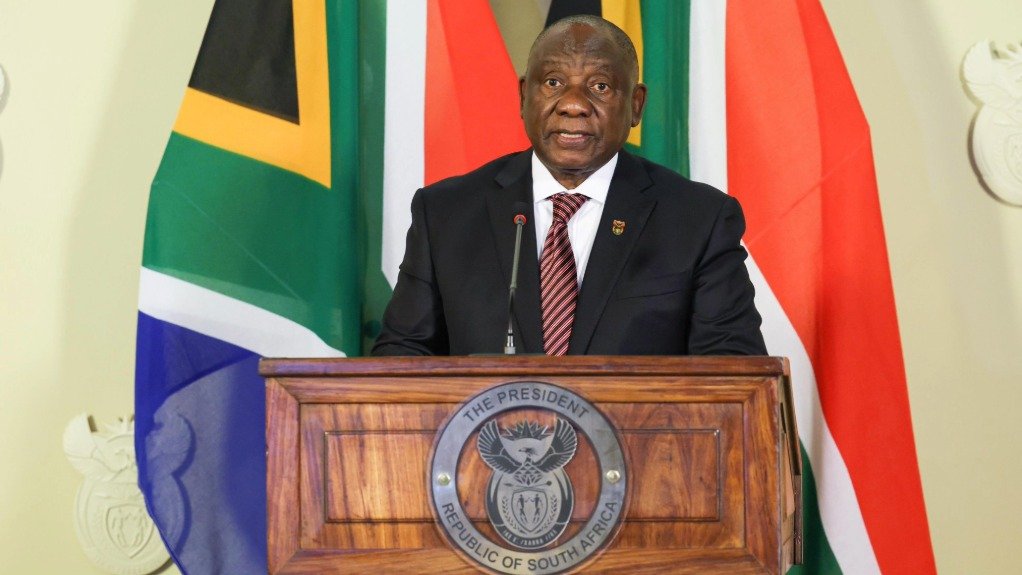President Cyril Ramaphosa has called for urgent global action to put water at the forefront of climate change and finance discussions, urging world leaders, investors, and policymakers to transform water from a crisis sector into a powerful opportunity sector for economic growth, innovation, and peace. Speaking at the African Union’s Africa Water Investment Programme (AU-AIP) Water Investment Summit in Cape Town on Wednesday, Ramaphosa officially unveiled the Global Outlook Council on Water Investments, a groundbreaking international platform designed to mobilize finance, coordinate global leadership, and close Africa’s $30 billion annual water investment gap by 2030.
The new Council, a flagship G20 Presidential Legacy Initiative under South Africa’s leadership, will serve as a political and investment mechanism to track commitments, unlock funding, and harmonize efforts across governments, development banks, private investors, and multilateral institutions. The launch marks a major milestone in Africa’s journey toward universal access to safe water, climate adaptation, and sustainable economic transformation.
Addressing delegates, Ramaphosa described the summit as a historic moment not only for Africa but for the world. “We gather here as decision-makers, investors, financiers, and champions at a time when the world faces a deepening water crisis. Yet this is also a moment of immense opportunity. If we rise together, water can become not just a means of survival but a driver of economic transformation, innovation, and peace,” he said.
The Global Outlook Council builds on a process that began in 2016 with the High-Level Panel on Water, initiated by then UN Secretary-General Ban Ki-moon and World Bank President Jim Yong Kim. Following that panel’s recommendations, the African Union established the AIP to accelerate investments in Africa’s water sector. The new Council now seeks to bring this vision to scale, with an ambitious goal to mobilize $30 billion annually by the end of the decade.
Ramaphosa outlined four primary objectives for the summit: to endorse a declaration committing to scaled-up water investments, to showcase 80 high-priority water projects from 38 African nations, to create matchmaking opportunities between governments and financiers, and to elevate water as a top-tier agenda item ahead of major global gatherings such as the G20, COP30, and the 2026 UN Water Conference.
Calling on global and African investors to take bold action, he said: “Let us leave this summit with deals, pipelines, partnerships, and a permanent global mechanism to sustain the momentum. We are bringing Africa and the international community together to invest in water as a catalyst for growth, resilience, and stability.”
The President also highlighted recent domestic progress, referencing the launch of the second phase of the Zuikerbosch Water Purification Plant in Gauteng, which will deliver an additional 600 million litres of water per day to four provinces. He described it as “a demonstration of our government’s commitment to infrastructure investment, economic upliftment, and sustainable water supply for generations to come.”
The Global Outlook Council will be co-chaired by influential global leaders, including President Sheikh Mohamed bin Zayed Al Nahyan of the United Arab Emirates, Prime Minister Mia Mottley of Barbados, and philanthropist Bill Gates, co-chair of the Bill & Melinda Gates Foundation. With this level of leadership and commitment, Ramaphosa stressed that Africa has the potential to position water not just as a survival necessity but as a strategic driver for industrial growth, climate resilience, and global cooperation.
By placing water at the center of climate, economic, and development strategies, the initiative aims to address one of the most pressing challenges of the 21st century while unlocking new opportunities for sustainable prosperity across the African continent and beyond.














Leave a comment